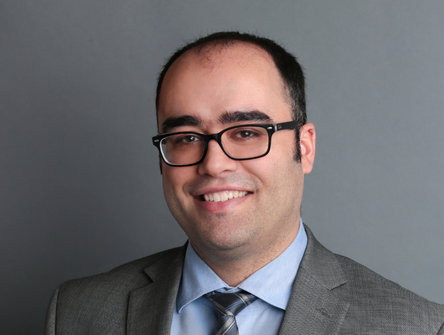Making room for neurodiversity in law
Why law firms would benefit from following a more flexible hiring process.
.jpg?ext=.jpg)
Simon Margolis knew he wanted to be a lawyer. He enjoys writing, tackling conceptual problems, and diving into minutia. But psychologists told his parents he should focus on computer science instead – because Margolis is autistic.
“People were saying I was bad with social skills, so ‘he should work with computers,’ but that’s not how it works,” says Margolis, a knowledge management lawyer at BLG. “We need to have more dialogue with neurodiverse people who are adults.”
The University of Victoria Faculty of Law hopes to start the conversation about supporting neurodivergent people in the legal profession. This fall, the Access to Justice Centre for Excellence (ACE) launched the Canada Neurodiversity in Law project, an advocacy program.
Neurodiversity refers to individuals whose neurological differences affect how their minds work. Sociologist Judy Singer, who is autistic, created the term in the 1990s to move people away from the misconception that autism, ADHD and other neurological differences are problematic. Many of these differences can be strengths. For example, dyslexic individuals often have strong visual, creative and problem-solving skills.
“I’m hoping this research will empower neurodiverse individuals,” says Rachel Lewis, a second-year law student at the University of Ottawa, who recently transferred from the University of Victoria Faculty of Law. “We don’t like the word disability. It’s about people who do things differently and how we can use our abilities to further advance in the legal profession.”
The project is a student-led initiative with Lewis, who is neurodivergent, working as a research assistant for ACE. The aim is to create mentorship opportunities for neurodivergent people, eliminate barriers and change discriminatory language.
One of the calls to action is to have the Canadian Bar Association and law societies create dedicated programming that includes workshops, toolkits and inclusion reform policies that accommodate neurodivergent law students, articling students, lawyers, and judges. The Law Society of England and Wales has a disability network that includes resources and articles about neurodiversity.
“Neurodiverse students deal with stereotypes and misconceptions that question their capabilities,” says Lewis. “That should not be the case because there is a competitive advantage to thinking differently in law school.”
Lewis was inspired to work with ACE on the project after her experience with the Black Law Students Association of Canada (BLSA). She served as Advocacy Director last year and was part of the research team that wrote the 2023 BLSA census report about the Black law student experience and the number of Black law students in Canada.
“Law school is a unique place for most people, but it can present challenges when there is a lack of representation,” says Lewis. “There’s still so much to overcome with the admission processes, interview selections, law clerk opportunities, and financial resources available. It’s immediately hard and difficult if you do not have a support system around you, especially when navigating the law school process. However, I’m not alone. Other lawyers, judges, are dealing with the stigma which makes it hard to disclose.”
Earlier this year, the law school hosted a webinar, in partnership with CBA-BC, about neurodiversity as part of B.C. Access to Justice Week.
Understanding neurodiversity is more than just about the practice of law. There’s also the issue of serving neurodivergent clients and understanding their needs.
“We like to think about access to justice in a broad manner that goes beyond traditional conceptions of criminal justice and legal aid,” says Michael Litchfield, the associate director of the Access to Justice Centre for Excellence. “It is important to deepen our understanding of any access issues that may arise from neurodiversity in the legal sector, and one goal of this project is to engage with the profession to do this.”
Part of the project will also look at how law schools can be more welcoming and inclusive for neurodivergent people. Accommodation is a significant issue. Law students can have difficulty accessing the resources they need to succeed.
“This project has sparked an important conversation within the law school about how we teach and the resources we provide,” says Litchfield. “One of the questions that arises is how do you ensure that you are reaching people who learn differently?”
Margolis faced similar challenges in law school. He describes autism as clustering information differently. Lights are brighter, sounds are louder, and stress is more intense, slowing down processing. When Margolis studied history and political science, he had some help, such as extra time for exams. He had always been open about his experience with autism.
But not in law school.
“I wanted to protect my accommodation,” he said. “In undergrad, I would share my vulnerabilities, but I was cautious about that in law school. I did pretty well in my grades. With more support, I could’ve done better.”
Law firms can attract neurodivergent lawyers by creating a flexible hiring process. According to resources from the Law Society of England and Wales, reasonable adjustments in the interview process are helpful, such as understanding how open-ended questions can be more difficult than situational ones; and how eye contact can be difficult for an autistic person. A one-size-fits-all approach is not appropriate, so asking interviewees for any adjustments ahead of time, such as providing more time to review any documents.
“During [on-campus interviews], people said all the firms are the same, but there are substantial differences, and they’re not all apparent right away,” says Margolis. “When you’re autistic, waiting for the right position can take time. You have to build your skills yourself outside of employment.”
The Neurodiversity in the Law project will launch an outreach portal later this semester to begin collecting data, and plans are underway with the CBA to create a section about neurodiversity in the future.
“There needs to be mentorship programs, scholarship funding available, and extensive research that acknowledges the barriers that neurodivergent peoples encounter when entering the legal profession,” says Lewis. “We want to shift our language from dis-ability to persons with capable advantages that uncover their innovative talents and strengths.”


